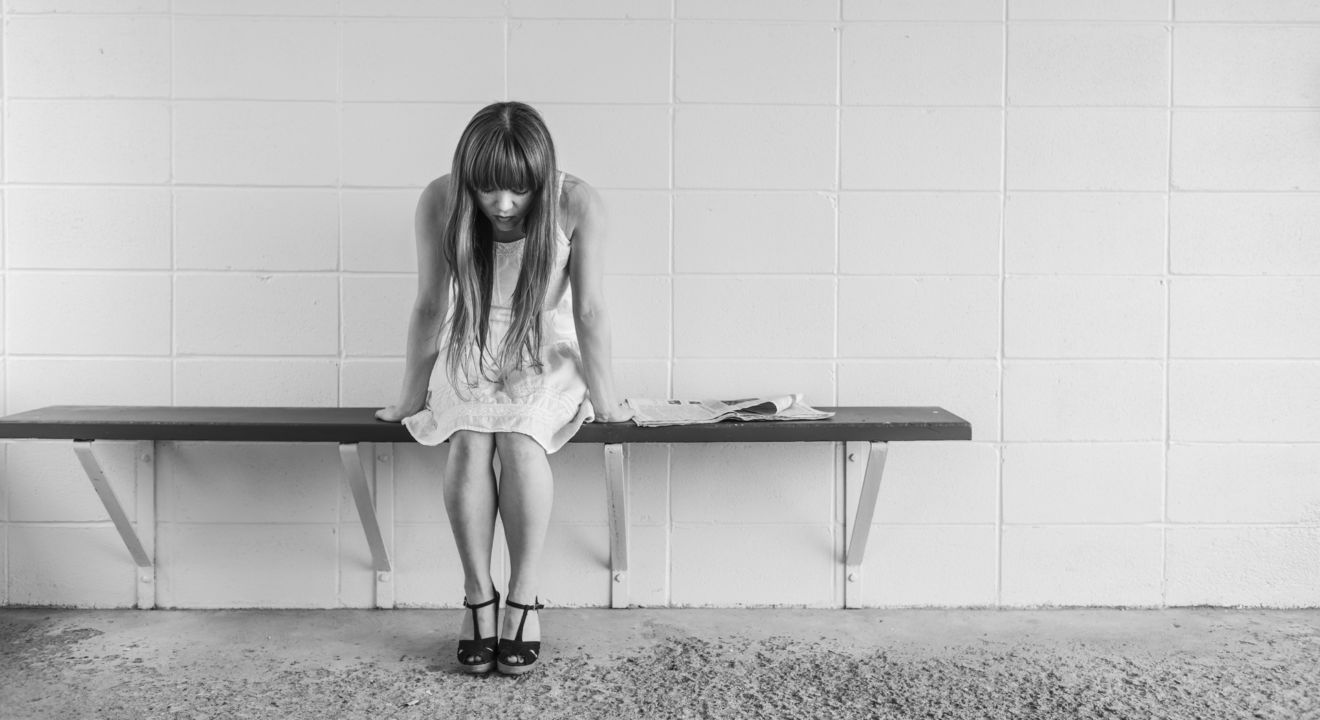Relationships May 11, 2017


Have you ever had cramps but no period? What about lower back cramps, nausea during your period, painful menstruation or all of the above? To tell the truth, menstruation symptoms vary so much between women that, sometimes, an abnormal period becomes our new normal.
What’s the number-one cause of these abnormal symptoms? Usually, you can blame prostaglandins, hormone-like substances that trigger contractions in your uterine muscles. Sometimes these prostaglandins can be over-produced and spread to other parts of your body. Nausea during periods – as well as diarrhea or vomiting – can be caused by these excess compounds. Talk about proof that more isn’t always better!
Sometimes, though, having cramps but no period or other abnormal period symptoms are signs of a more serious health condition. Here are five abnormal period symptoms you shouldn’t ignore, plus what they can be caused by!
If you have extremely painful periods with lots of cramping, you probably should book a check-up with your doctor. Some cramping is expected as your body discharges its uterine lining. However, painful menstruation can also be a sign of endometriosis. Endometriosis is a chronic condition in which parts of your uterine lining grow outside of the uterus.
If you have endometriosis, you can not only have painful periods but also experience cramps at other times of the month. Lower back cramps, cramps below your belly button and pain during sex are also common. Don’t try to just “cope” with painful cramping. See your doctor to learn what treatments – for endometriosis or otherwise – are available for you!
Do you know how heavy a flow is supposed to be during your period? In total, you should lose around two to three tablespoons of blood. And, don’t worry. You don’t have to measure to know if you’re safe. Just consider these questions: Does your period last longer than 7 days? Do you go through more than seven pads or tampons a day? Are you losing enough blood to be anemic?
If you answered “yes” to any of the above questions, you might want to speak with your doctor. There are many possible causes, but one is uterine polyps or fibroids. These are small tumors that grow in the uterine lining. They aren’t cancerous; however, they can cause excessive bleeding and cramping. Depending on their size, these fibroids can also push against your bladder or rectum, causing additional discomfort. So, though they aren’t cancerous, it’s a good idea to talk to your doctor about treatment options for fibroids.
Talking about bathroom business probably isn’t a daily part of your life. And, if you’re having diarrhea during your period, we’ve already mentioned how that could be a normal side effect of excess prostaglandins. If you’re experiencing painful bowel movements during your period, though, you should talk to your doctor sooner rather than later.
Why? This is another symptom of endometriosis. In this case, the uterine lining grows in the bowels. Although the exact commonality isn’t known, researchers estimate that 5 to 15 percent of all women with endometriosis experience painful bowel movements. Just remember this piece of advice: if you can’t go painlessly, go see your doctor for a check-up.
Compared to some other abnormal period symptoms, spotting may seem like no big deal. However, spotting can be a sign of bigger issues than just another stained pair of panties.
For instance, if you experience spotting along with sudden, sharp cramping or the feeling of pressure in your stomach, you could have a burst ovarian cyst. Most cysts – sacs of fluid – are harmless and dissolve on their own. In rare cases, though, they can grow large enough to burst, causing other health complications. Spotting can also be an early sign of pregnancy or an ectopic pregnancy, in which an egg has been fertilized outside of the womb. The first can be life-changing and the second life-threatening, so spotting is an abnormal period symptom you definitely need to pay attention to.
Maybe you’ve never had bad cramps but no period or painful menstruation. In fact, maybe you never will. Any changes in your period need to be paid attention to, though.
For instance, if you have polycystic ovary syndrome, you could have irregular periods or experience a sudden stop in menstruation. With PCOS, cysts form in the ovaries and can cause other issues like obesity, infertility, excessive hair growth and acne. Treatments vary depending on if you want to become pregnant of not, but treatments are available. Having suddenly irregular periods – along with abnormal period symptoms like pelvic pain and heavy vaginal discharge – could also point to pelvic inflammatory disease (a bacterial infection that affects the female reproductive system) or even ovarian cancer.
These facts aren’t intended to scare you; instead, we hope they encourage you to pay attention to your menstrual cycle and symptoms like painful periods or having cramps but no period. Every woman’s cycle is different, which means you’re the perfect person to decide what symptoms are normal and abnormal for you.
If you do have some of these more unusual menstruation symptoms, though, it’s probably better to be safe than sorry. By paying attention to menstrual symptoms, reaching out to a doctor when concerned and not being ashamed to talk about painful periods, women everywhere can take control of their menstrual health…and embrace healthy, pain-free lives.